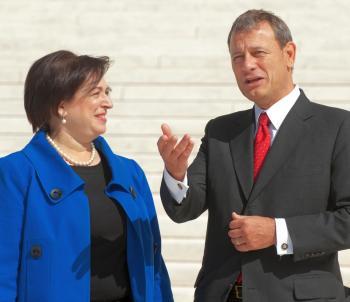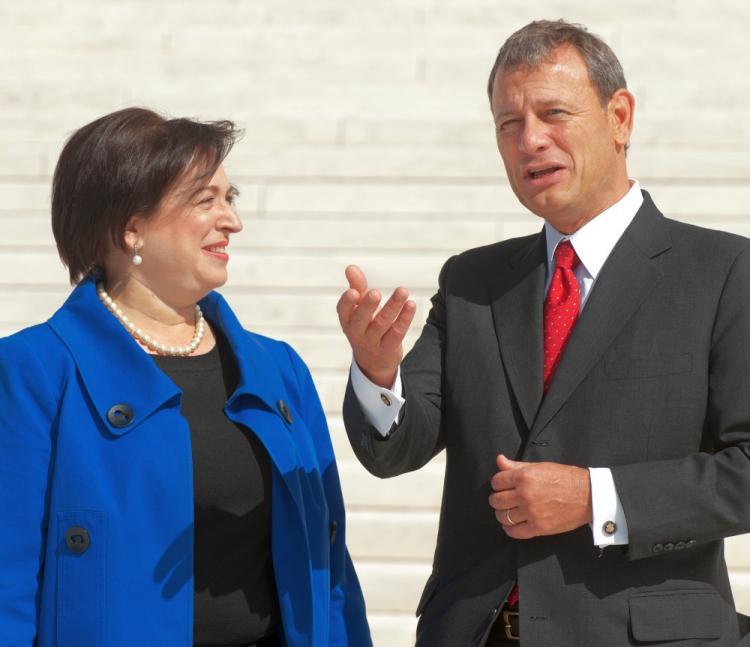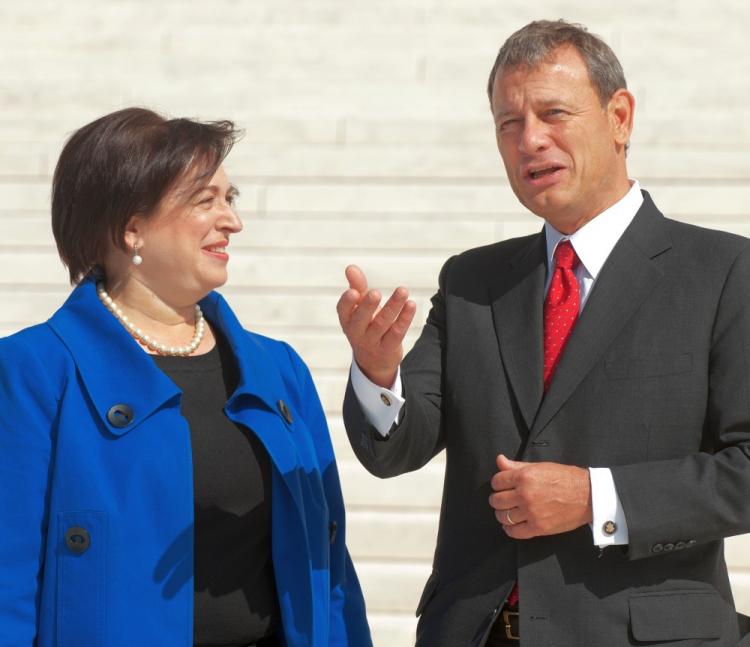The 112th session of the Supreme Court started Monday with the court’s newest associate justice exiting the room before the second hearing started, and that is just the beginning.
Elena Kagan will recuse herself from 24 of the 51 cases scheduled so far this year due to conflicts of interest arising from her former job as solicitor general for the government, where she was involved in issues before they reached the Supreme Court.
Kagan’s absence means not only will there be one less woman sitting on the court, the liberal point of view expected from the justice will also be missing, leaving five conservative and three liberal leaning justices on the roster.
With just eight associate justices rather than nine, the chances of an evenly divided court increase, creating a favorable court for the party that won at a lower level. Under this circumstance, only four associate justices are required to uphold a previous judgment, and no new national precedent is created.
While a number of the usual hot topics such as abortion, gender-based discrimination, challenges to the death penalty, and gun rights absent from this year’s docket, cases centering on First Amendment challenges top the agenda.
On Wednesday the court will consider the free-speech legitimacy of an anti-gay, inflammatory protest at the funeral of a U.S. Marine lance corporal killed by an IED in Iraq.
In another First Amendment case brought by California, the court will consider whether violent video games should or should not be sold to minors.
A decision on the Arizona immigration law with the power to penalize business owners for failing to run background checks on applicants is also highly anticipated.
Elena Kagan will recuse herself from 24 of the 51 cases scheduled so far this year due to conflicts of interest arising from her former job as solicitor general for the government, where she was involved in issues before they reached the Supreme Court.
Kagan’s absence means not only will there be one less woman sitting on the court, the liberal point of view expected from the justice will also be missing, leaving five conservative and three liberal leaning justices on the roster.
With just eight associate justices rather than nine, the chances of an evenly divided court increase, creating a favorable court for the party that won at a lower level. Under this circumstance, only four associate justices are required to uphold a previous judgment, and no new national precedent is created.
While a number of the usual hot topics such as abortion, gender-based discrimination, challenges to the death penalty, and gun rights absent from this year’s docket, cases centering on First Amendment challenges top the agenda.
On Wednesday the court will consider the free-speech legitimacy of an anti-gay, inflammatory protest at the funeral of a U.S. Marine lance corporal killed by an IED in Iraq.
In another First Amendment case brought by California, the court will consider whether violent video games should or should not be sold to minors.
A decision on the Arizona immigration law with the power to penalize business owners for failing to run background checks on applicants is also highly anticipated.







